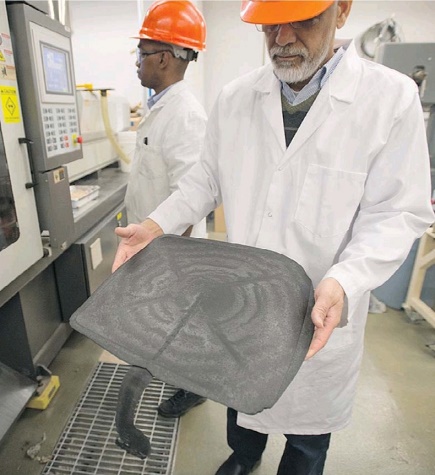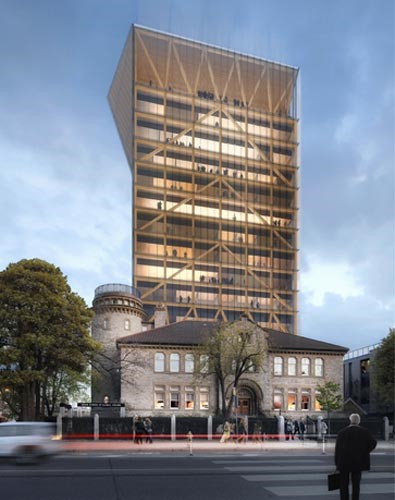Canada’s natural resource industry has traditionally included forestry, mining and agriculture, all having played a significant role in the development of economic and social growth. The 21st century calls for more effective use of our natural resources, not only by pre-processing them but by adding further value to maintain a leadership role in the industrial world. To achieve this goal, Canada’s future research and innovation strategies must link the forestry industry with manufacturing to create processes and products that are leading-edge, energy-efficient and eco-friendly. The Daniels Faculty’s Centre for Biocomposites and Biomaterials Processing and the Mass Timber Institute aim to lead the forestry sector into the future through research, education, and industrial and government partnerships.
Centre for Biocomposites and Biomaterials Processing

A variety of research themes are being extensively pursued as the CBBP labs work on the development of next generation energy efficient lightweight performance nanomaterials for industrial applications including aerospace, automotive, bio-medical and electronics. Some of their dedicated researchers are also working on solving challenges faced by the Canadian pulp and paper industry by improving the cost effectiveness and sustainability of the biorefinery system such as transforming residual biomass into useful chemicals and composites. Furthermore, CBBP researchers are exploring the utilization of bio-based raw materials such as cellulose fibers, vegetable oil, rubber, and starch in commercial and industrial applications for a green and prosperous future.
The CBBP’s projects are categorized into four distinct research areas:
- Bio-plastics Research and Development
- Cellulose Based Micro and Nano Composite Technology
- Industrial Biomaterials and Biocomposites Manufacturing
- Biomass Technology – Value-added Utilization of Residual Biomass & Biochemicals
Mass Timber Institute

to be built on the University of Toronto campus
(Patkau Architects & MJMA)
As population continues to rise worldwide, so too will the demand for more personal and professional accommodations. Building these new accommodations with concrete and steel alone, however, will make it exceedingly difficult to meet existing targets for global sustainability. Building with mass timber will help meet both the sustainability targets and the rising demand. Canada, with its vast forest resource and sustainable wood supply, is well-positioned to capitalize on this demand. Despite this, Canada has fallen behind several European countries and the USA in the production and export of mass timber.
The Mass Timber Institute envisions future cities around the world to be filled with mass timber buildings built with Canadian technology and wood from sustainably managed forests. In order to realize this future, they aim to position Canada as a global leader in the design, manufacture, and export of mass timber building systems. By connecting stakeholders and rights-holders in industry, Indigenous communities, research, and education, the Mass Timber Institute strives to increase the transfer of knowledge and understanding among these groups.

https://www.masstimberinstitute.ca/
